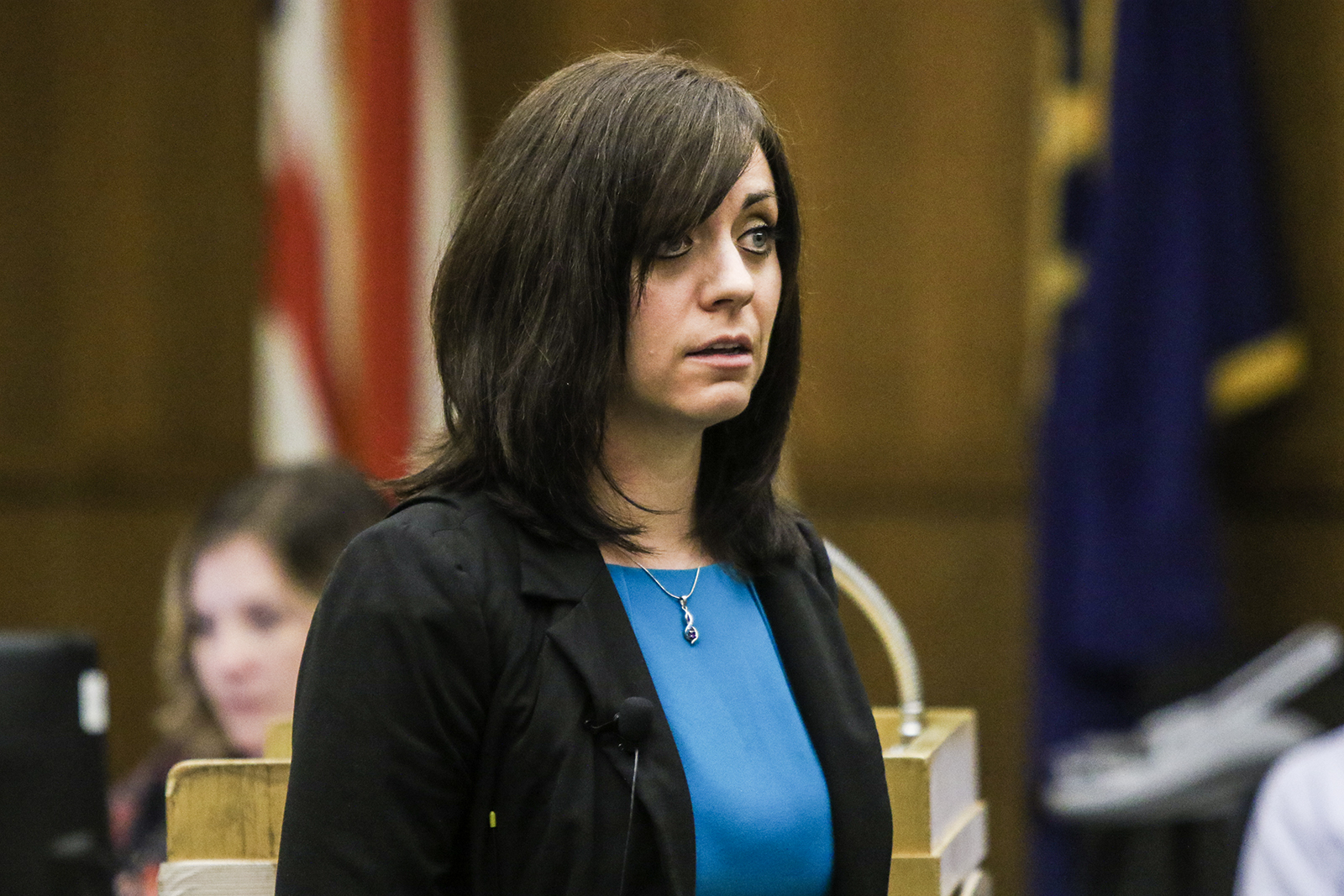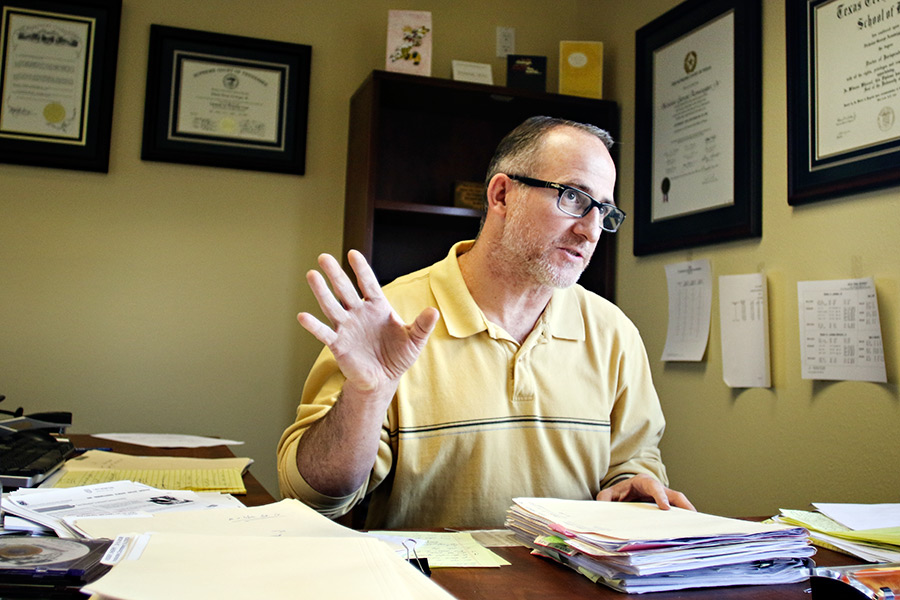Kalispell’s Public Defender Staffing Levels Remain Stable, Despite Years of Statewide Volatility
The Office of State Public Defenders attributes low caseloads and lack of job competition in the Flathead Valley compared to statewide offices like Billings, which saw high turnover during the pandemic and continues to face challenges
By Maggie Dresser
During the height of the pandemic when Montana public defenders Alisha and Greg Rapkoch took over the case of Billings resident Deandre Gulley, who was arrested on homicide charges, he had been in custody at the Yellowstone County jail for six months without an attorney.
Gulley was charged with three felony counts of deliberate homicide, assault with a weapon and criminal endangerment in the 2019 fatal shooting of a man outside of Lee’s Saloon on the south side of Billings.
The Rapkochs, who are based at the Kalispell Office of State Public Defenders (OPD), traveled more than 800 miles roundtrip to the eastern side of the state to defend Gulley when no other attorneys would take it.
While Gulley was described as a “difficult client,” Alisha Rapkoch says there was a confluence of events that also led to the defendant’s prolonged lack of representation. The pandemic prompted a backlog of cases, several attorneys left the OPD statewide, and it became increasingly difficult to contract with private attorneys.
Additionally, issues surrounding the delayed counsel for defendants wound up in the Montana Supreme Court after Yellowstone County District Court Judge Donald Harris faulted the OPD for not promptly assigning counsel to defendants. The high court ultimately ruled in favor of the OPD, but it illustrated a statewide problem of dysfunction in the legal system.
As a result of these delays, Gulley would not stand trial until 2023 – four years after the shooting. He was convicted of the crime, but Rapkoch said the court proceedings should never have taken that long.
“Imagine how bad things have to be to have two attorneys in Kalispell, Montana take a homicide in Billings,” Rapkoch said. “It’s an eight-hour drive each way.”
As public defenders who believe they have a duty to represent the most vulnerable clients in the state, the Rapkochs, who are married, took Gulley’s case because nobody else would.
“Imagine what it feels like sitting in jail for a ridiculous amount of time before you even have meaningful representation,” Alisha Rapkoch said.
Statewide, the OPD felt the impacts of the widespread resignations in 2021, with 25% of public defenders leaving the Billings office alone.
But despite the high turnover agency wide, the Kalispell office, which covers Flathead and Lincoln counties, saw a full staff during those tumultuous years.

“Kalispell remained remarkably stable during the covid pandemic, especially during the Great Resignation,” OPD Director Brett Schandelson said.
Schandelson attributes that stability to a lack of competition for other high-paying attorney jobs in the area combined with fewer caseloads than other areas in Montana.
“They don’t have the volume of incoming work,” Schandelson said. “Historically, Kalispell has had a light caseload, despite what some people might say about the county attorney’s office.”
While the Kalispell OPD has successfully recruited and retained lawyers in recent years, the Flathead County Attorney’s Office is facing a chronic staffing shortage as caseloads pile up.
As of this June, half of the criminal deputy attorney positions, which start at a salary of $84,000, were vacant.
“We’re losing folks to jobs that frankly pay more and demand less,” Flathead County Attorney Travis Ahner said earlier this year.
Following the 2021 Legislative Session, the OPD’s starting salaries increased to $84,000 and a case limit is now enforced. When cases exceed the limit that public defenders can handle, private contractors pick up the extras. However, they can pick and choose their cases.
“We are currently one of few offices nationwide that have those limits established,” Rapkoch said. “Once you hit that cap, we then contract out. That ebbs and flows, but when the county attorney’s office is filing a bunch of cases, we don’t really have a choice but to take them, but we’ve created this system now where we can contract out to private attorneys to take those cases if we are at our limit.”
The cap system does sometime mean more delays for clients, Schandelson said, but the OPD tries to ensure they are assigned within 14 days. Agency-wide, 85% of cases are assigned within that timeframe and those that aren’t go into contract pools where private attorneys earn $71 per hour.
Prior to the OPD being established in 2006, public defender offices were separated by cities and counties before the American Civil Liberties Union (ACLU) sued the state, alleging that more resources were available for prosecution compared to defense.
Many rural areas, including Kalispell, didn’t even have a full-time office before it became a state program.

“It’s tremendously better,” Kalispell OPD Managing Attorney Nick Aemisegger said. “I think the system here is a lot stronger and as a result we have vibrant public defender office at the end of the day.”
Born and raised in Kalispell, Aemiseggar left the state for law school and worked as general counsel for the health department in Tennessee where he managed a large staff. He joined the OPD as the manager when it launched 18 years ago with no experience as a criminal attorney.
“That was such a steep learning curve,” Aemiseggar said. “It worked out, but it was not ideal.”
Aemiseggar learned the criminal law procedure and never went back to civil law.
“The more I learned about it, the more I fell in love with it,” Aemiseggar said. “There’s two different things – one is maintaining the integrity of the criminal justice system – I think we play a critical role in doing that. But the second is coming alongside people at the lowest point in their lives and inspiring them and showing them that we do care, and we are willing to work hard and that they are not getting substandard service. We’re invested in not only helping them with their case, but also if we can be part of changing the trajectory of their lives. We have the opportunity to do that, and I love that – it really resonates with me.”
The job fulfillment also keeps Alisha Rapkoch at the OPD, where she’s been defending the county’s most vulnerable community members.
Rapkoch was hired at the Kalispell OPD straight out of law school in 2015 and says she can’t imagine herself doing any other type of work.
“I can’t think of anything else I’ve ever wanted to do,” Rapkoch said. “Even when the days are hard, I don’t know that I would quit and go do something else. I just don’t think I would find fulfillment in my soul even though working somewhere else would mean more money.”
But Schandelson said this “badge of honor” mindset is not sustainable, and he warns that it’s not what the incoming generation is looking for.
“To some people, that was a badge of honor,” Schandelson said. “My response to that is, I’m sorry, but that’s not how you build a justice system.”
The passion for public defense is one reason the Kalispell office has remained fully staffed, but other offices continue to see some turnover, although it’s not nearly has high as it was a few years ago.
Schandelson said the Butte, Helena, Missoula and Great Falls offices have seen low turnover, but Bozeman has struggled due to the high cost of living and Eastern Montana also struggles to maintain a full staff. While Billings has improved, the OPD still faces staffing shortages.
“Billings has been harder – it’s the toughest nut to crack,” Schandelson said. “We have a county attorney’s office saying there are thousands of uncharged felonies. There just aren’t physically enough attorneys – we see that on the contracting side, too.”
While staffing levels at the OPD are drastically better compared to during the height of the pandemic, Schandelson says the state needs a higher volume of attorneys and a system that will support them.
“You can’t build a system where underpaid people are willing to devote their lives to it,” Schandelson said.